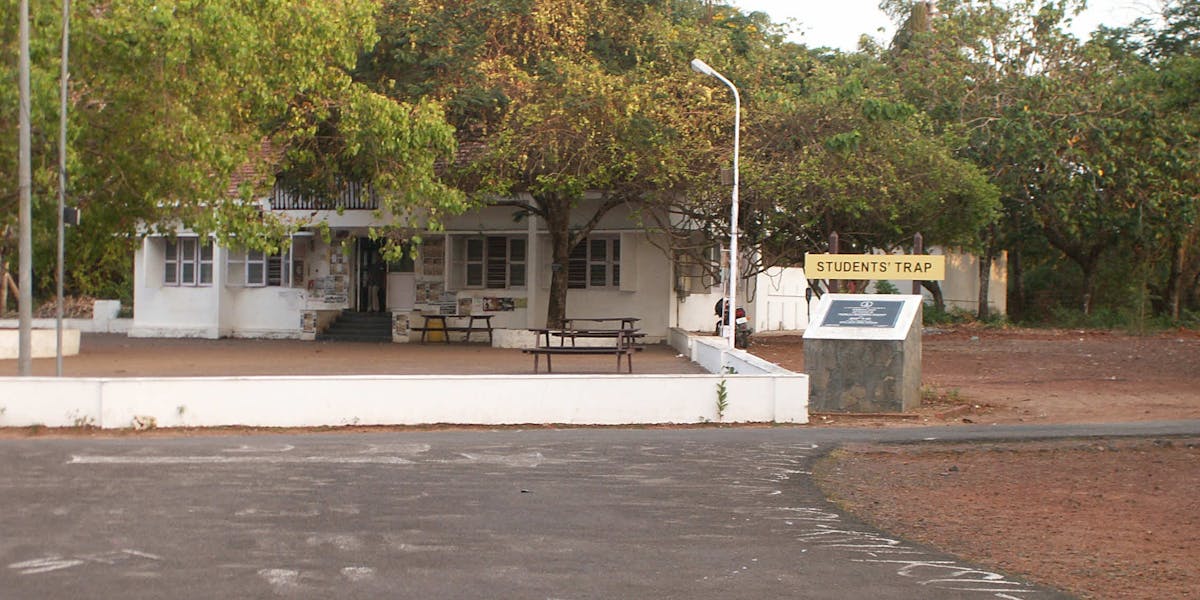
Summer Research Fellowship Programme University of Calicut – Vignesh. D

As a part of the series tete-a-tete with the Interns, we are covering the experiences of several students who have completed their Internships in various Industries and Research Institutes. If you are interested in contributing a piece, please feel free to get in touch with us.
Mail to sjcgct@gmail.com
Tell us about yourself?
I am D.Vignesh of Final Year IBT. I hail from Chennai. I did my schooling at D.A.V. Matriculation Higher Secondary School, Chennai. After completing my higher Secondary education, I wanted to do MBBS. Due to competition among the students, I was unable to get into MBBS. I did not want to waste the Biology I studied and so I took Industrial Biotechnology at GCT.
In which field your research interest lies in?
My research interest lies in the area of stem cell technology. This field is a newly emerging field in the area of medical sciences. The potential for this field to form the backbone of medicine is so high. The research in this field is highly funded by International organizations due to impact in treatment of cancer, regenerative medicine, etc.
What are the sources you kept yourself connected with to know about IAS internship and other Internships in general?
I had good contact with my friends at IIT, Madras and so I applied for many internships abroad. My seniors were my total inspiration as they kept on informing me to apply for more internship. The website www.internshala.com, and EduInfo page in Facebook is the base for internship programs and was so useful for me to apply.
Could you briefly explain us the procedure to apply for an internship in IAS?
The procedure for applying is so simple. A proposal for the internship in the area of interest must be kept ready prior applying. The names of guides in our area of research interest must be well analysed and the name of six guides must be ready. The application is available online. The application has to be submitted online and a registration number will be provided. Hard copy of this application was taken and this was accompanied with two letters of recommendation from faculty members. This was sent to Indian Institute of Sciences address provided in the website.
What is the selection process for the internship?
The selection for the internship is purely based on the suggested idea and the cumulative grade point average. The suggested project idea must coincide with the profile of the selected guide. This will aid in lucid understanding of the project idea.
What are the qualities that you think you possessed for qualifying for an internship in IAS?
The major quality that I possessed for applying for internship at IAS is different creative thinking that helped in suggesting a more funky idea. Although it is not very important to have a high CGPA, but I felt that CGPA of 9.02 helped me having an edge over other applicants.
What are the qualities that universities look for in someone to select him/her for an internship?
The universities look into the idea suggested and the feasibility of the candidate to survive at the university. The successful completion of project not only depends on the knowledge but also on the survival at the place of internship for a period of two months.
Any common mistakes which you feel students should avoid while searching and applying for internships?
The major mistakes that students do while applying for internships is thinking about the stipend offered. The recommendation letters for the internship also must be so clear and it must indicate the attitude of the students. Some faculties here, due to tight jobs will be unable to fill up the form completely. This situations must be avoided by students and the letters of recommendation must be from well-known faculties.
Could you please make us aware with what research project you carried out during your internship period and its purpose?
The research project that I carried out at University of Calicut was in the department of acarology. This has its greater application in the field of agriculture. Mites are regarded as microscopic pests in plants that cause measurable damage and lessens yield in crop plants. The damages caused by these mites on the plants can be assessed by understanding their reproduction biology at various conditions. Their bio-control can be studied by using extracts from economically unimportant plants. This is the research project that I undertook at University of Calicut.
What are applications of your project in near future and your work in it?
The applications of my project in the field of agriculture is high. This may be in near future or far away. Even a smallest contribution of this field can create large benefits.
Did you receive enough support and guidance? How was it helpful to you?
Yes I got adequate support and guidance through the project. The accommodation was also arranged and supported by the Institution and IAS. The stipend provided by IAS was more than sufficient to satisfy the needs there.
Did you do any preparations on the project before attending the internship? Is that important?
No, I did not have any preparations prior to the project. The area of research interest of my guide was a bit diverged from my field. This was a drawback but I managed to do up with the needs when I reached there.
What were the differences in work culture and atmosphere you experienced in GCT and over there?
The laboratory facilities in University of Calicut were good and maintained well. The working hours over there were 24 x 7 and hence it was possible for the constant monitoring of the project. The one huge difference I felt was the attitude of students towards Research.
How this internship period has helped you to improve your technical skills and capabilities?
This internship has enabled me to improve my laboratory handling techniques. The exposure I got there was immense and great. I was allowed to use many new sophisticated instruments such as con-focal microscopy, HPLC, etc.
In what way doing internship projects shall help the students?
Doing internship will help us to think well and get prepared for the final year projects. There will be more time to think on the further proceedings and the other important task is references and contacts. The faculties in the Institution are highly qualified and hence their contacts would aid us in recommendations further.
What will be your advice and suggestions for your juniors who will be attending such internships in future?
The time period of the internship plays a key role. My advice to juniors will be to apply only for internships that are feasible, because of time and course constraint in our college. These kinds of internship programmes will help gaining more knowledge on a particular field and will add on as an extra credit to the research profile.
DISCLAIMER: The opinions or views expressed are views of the individual writers and not of the institution. All forms of content published in this website and Student Journalist Council - GCT's social media handles are strictly properties of Student Journalist Council - GCT and are works of the various teams of the respective academic years.
No article, story or any form of content produced by Student Journalist Council - GCT is meant to be reproduced or distributed, either in parts or whole, without prior permission from Student Journalist Council - GCT for any purposes.
